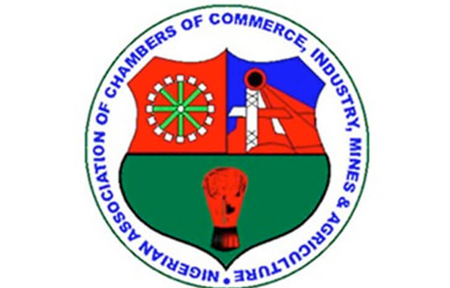Worried by the impact the fuel subsidy removal will have on businesses, the Nigerian Association of Chambers of Commerce, Industry, Mines and Agriculture (NACCIMA), has urged the Federal Government to make productive plan to cushion the effects on businesses and Nigerians that are already burdened with much economic pressure.
President of the association, John Udeagbala, who made the remark at the second quarter press briefing on the economy, made reference to the statement of the Minister of Finance, Budget and National Planning, Zainab Ahmed, where she indicated government’s decision to remove subsidy on petrol (PMS), arguing that government was borrowing money to fund petrol subsidy.
The NACCIMA boss noted that the association was not against subsidy removal from fuel, but was concerned about the impacts of the removal on businesses, which has led to the shutdown of many SMEs and increased unemployment rate in the country.
“The greater challenge is that government has not shown any tangible productive plan to cushion the impacts of the subsidy removal other than to borrow additional $800 million Dollars (statistically translating to N8000 per ordinary Nigerian) which, according to them is meant to cushion the impact of the fuel subsidy removal.
“Nigeria’s debt today stands at a whopping N77 trillion.
“NACCIMA calls on the Federal Government to urgently fix our four refineries which have been in comatose for the past 16 years, so we can end petroleum products importation into the country. Aside from production of basic fuel products (PMS, Diesel, etc), there are other heavier distillates and by-products of these refineries which are also critical inputs for industries such as LPFO, SRG, Carbon Black, etc.
“This, we believe, will help to generate further employment opportunities for our citizens particularly the teeming youths. It will also address the impact of fuel subsidy removal without adding additional debt burden on the nation. “Besides, our ability to provide some basic raw materials internally will help our industries to compete better to benefit from the African Continental Free Trade Agreement (AfCFTA).”
Udeagbala also advised the government to consider the impending factors affecting the Ease of Doing Business (EoDB) in Nigeria and implement the various solutions that the association has suggested in time past for lasting solutions to these myriads of challenges.
“He said collaboration with the OPSN and implementations of suggested solutions to these challenges will help ginger the economy back to inclusive growth and development.
“Nigeria was adjudged one of the 10 most improved economies in the world on the ease of doing business. However recent statistics on GDP report from Nigeria Bureau of Statistics show a degenerating ease of doing business which has put strain on the production industry of the Nigerian Economy resulting in a decline in growth rate. For example, Nigeria’s growth rate declined from 5.01 in Q2 in 2021 to 4.03 in Q3 of same year. It went down to 3.98 in Q4 of 2021 and in Q1 of 2022 dropped further to 3.11. this spiral decline has continued unabated. Many of the challenges impeding the ease of doing business in Nigeria include multiple taxation, multiple exchange rates, government policies somersaults, poor infrastructure, high cost of power etc.”
Meanwhile, reacting to the issue, Dr Muda Yusuf, Director, Centre for the Promotion of Private Enterprise (CPPE) said in his view that all matters relating to petrol subsidy removal should be left for the incoming administration to handle.
“This should be the default position since the current government has announced a budgetary provision for fuel subsidy up till June 2023.
“This is also the position of the Petroleum industry Act as amended. Rather than stir another round of controversy and confusion, the matter ought to be left for the new administration.
“The NEC announcement was really unnecessary.
“My expectation is that the new administration should have its strategy of managing the policy transition. This should not be preempted by the current administration.
“The NEC should avoid making policy pronouncement that may create problems for the new administration. I also expect that some level of informal consultation should have commenced between the transition team of the incoming administration and key stakeholders on the matter.
“The APC president-elect had categorically stated that it would remove petrol subsidy on assumption of office. Although it has not unveiled its strategy of doing so.”




